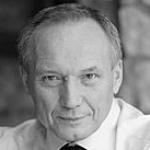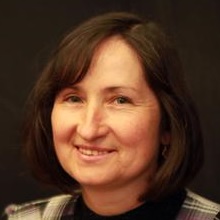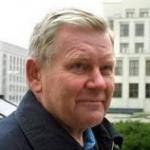Will there Be a Single Opposition Candidate in 2015 Elections?

Mikalai Statkevich
Last week Mikalai Statkievich, a former presidential candidate, stated from prison that the Belarusian opposition needs to choose a single candidate for the presidential election from a pool of people with serious politically-motivated convictions. His comments come ahead of Belarus's next presidential election in autumn 2015.
Statkevich has de facto suggested boycotting the elections and organising protests before the election day. Other politicians have heard about the prisoner’s proposal, but are not giving his words much consideration.
Already seven opposition figures have announced that they may participate in the upcoming election and are now working on the details a Congress that will choose a single candidate.
However, the opposition may return to Statkievich’s idea if they fail to work out a way to nominate delegates to the congress. Such a strategy from the opposition will help it exhibit its moral stance, but may further marginalise it.
A Proposal from Prison
On 19 August, Statkevich's web-site published the former presidential candidate's vision for the 2015 election season. The political prisoner insists on the need to select a single candidate to run for office. He says that an opposition leader should have serious political commitments and may even be someone who is currently in prison.
However, because the Belarusian Constitution prohibits candidates with a criminal record from participating in the presidential elections, the authorities will refuse to register a candidate with a prison record. According to Statkevich, if this will be the case, the opposition can simply just begin to protest and boycott the elections.
The former presidential candidate believes that the Belarusian opposition should firstly obtain a moral victory and then inflict political, international and moral damage to Lukashenka’s regime.
Other Candidates
Although some publicly supported Statkevich’s proposal, few actually share his views on the issue. The majority feel that Statkievich's own nomination should be considered only if the Belarusian opposition is unable to agree on the nomination of another single candidate.
Currently, several opposition leaders have already expressed their desire to challenge Lukashenka next year.
 Uladzimir Niakliaeu announced his presidential ambitions back in 2013. Belarusians know the leader of the Tell the Truth campaign as a poet, pro-democracy activists respect him, but many opposition politicians think that he is too pro-Russian.
Uladzimir Niakliaeu announced his presidential ambitions back in 2013. Belarusians know the leader of the Tell the Truth campaign as a poet, pro-democracy activists respect him, but many opposition politicians think that he is too pro-Russian.
Anatol Liabiedzka, leader of the United Civil Party, remains one of the old-timers of the Belarusian opposition. The congress of his party choose him as a potential presidential candidate on 31 May 2014. He seems to be the best opposition speaker, but he has been in politics throughout the life – something which may turn out to be his weak spot.
Valery Fralou, a retired General and deputy chairman of the Belarusian Social Democratic Party (Hramada), has a solid resume, but lacks a team that would promote his candidacy. He announced that we would like to participate in the presidential elections in June 2014.
Several other people have also stated that they do not exclude the possibility of their participation in the presidential campaign.
 Aliaksandr Milinkevich, leader of the Movement for Freedom and a single opposition candidate during the 2006 presidential election, has a impressive biography and ties to the West. He stated 18 August 2014 that if Congress of democratic forces will choose him as a single candidate, he will run. However, he also said that new people participating in the election would be the best path forward for the opposition.
Aliaksandr Milinkevich, leader of the Movement for Freedom and a single opposition candidate during the 2006 presidential election, has a impressive biography and ties to the West. He stated 18 August 2014 that if Congress of democratic forces will choose him as a single candidate, he will run. However, he also said that new people participating in the election would be the best path forward for the opposition.
Aliaksandr Lahviniec is Milinkevich’s deputy and perhaps the younger generation Milinkevich is speaking about. Lahviniec has taught for a long time in Europe and the United States, and worked in the European Parliament. On 4 August he said that he may become a candidate, but his nomination should be based on a decision reached together between several political forces.
Volha Karach, head of the Our House initiative, has become one of the most outstanding personalities in the Belarusian politics in recent years. She said to the Narodnaja Volia newspaper that she will run "if Belarusians will support her". Karach has tense relations with other members of the opposition, so she is unlikely to unite Belarusian pro-democracy forces.
 Elena Anisim, deputy head of the Belarusian Language Society, has announced her presidential ambitions recently. She works for a state TV station and at the Academy of Sciences. She is an outsider in the Belarusian politics – something which may prove to be both her strongest and weakest point.
Elena Anisim, deputy head of the Belarusian Language Society, has announced her presidential ambitions recently. She works for a state TV station and at the Academy of Sciences. She is an outsider in the Belarusian politics – something which may prove to be both her strongest and weakest point.
Can Statkievich's Idea Work?
Statkievich’s strategy is rooted in a desire to change the rules of the game in Belarusian politics. For a long time, the opposition has been unable to win any meaningful elections, elections that were plagued by government orchestrated falsifications and fraud. One of its biggest challenges lies in getting its message out, since they do not have access to large media outlets to spread their message.
Representatives of civil society and the political opposition often say that they live in a ghetto. To get out of the ghetto, the political prisoner offers to appeal to society's moral conscience, but does not direct their efforts towards society's actual needs.
In pursuing Statkievich's proposal, the Belarusian oppositions risks becoming even more marginalised in society. If opposition candidates lose the ability to use state media for campaigning during the elections, pro-democracy forces will fail to reach most of Belarusians.
Counting on large scale protests may also be a recipe for disaster since most Belarusians, like a majority of opposition politicians, remain intimidated, and law enforcement agencies are more than ready to violently suppress any protests. Thus, rather than achieving a moral victory, the opposition may become more even less visible.
The Battle Over Procedures
It is no secret that by running a single candidate, groups have significantly improved chances of running a successful campaign. A single candidate can gain the support of all of the pro-democracy electorate and the West. Through them, all of the institutional and financial resources of the opposition can be used towards their campaign.
When Milinkevich ran as a single candidate in 2006 he became the most popular opposition politician in the country in just six months. In 2010, the opposition fielded eight candidates, and thus demonstrated to Belarusians that pro-democracy forces in the country cannot find common ground even among themselves.
Although the Belarusian opposition has started discussing the 2015 presidential election last year, their progress remains modest at best. So far, the main opposition figures have reached an agreement on the conduct of the Congress, but the mechanism for electing delegates to the Congress remains obscure.
The result of the vote will depend on the mechanism for nominating delegates, so the opposition will certainly spend a few months working out the details before anything is established.
It remains possible that the opposition will fail to resolve the issue at all. Therefore, many in the opposition say that it may be better for pro-democracy forces to devote their time to society, not to congresses. Then again, a union may naturally be formed as no political movement in Belarus is self-sufficient and will be forced to look for allies in order to thrive.
Right now it would be better for the Belarusian opposition to discuss their ideas in public. Privately, all politicians complain about each other missing deadlines, pushing poorly conceived proposals, or saying one thing in media while doing another in real life. If the talks were held in public, the public would be able to determine for themselves who fails to keep their word.
Otherwise, Belarus' pro-democracy forces should heed Statkievich’s suggestion. If the opposition is not ready to be politicians, then maybe the time to be dissidents has come.










